28 Fellowships for Undergraduate Research


Alfred D. Chandler Jr. Travel Fellowships
The purpose of this fellowship is to facilitate library and archival research in business or economic history. Individual grants range from $1,000 to $3,000. Three categories of applicants will be eligible for grants: 1) Harvard University graduate students in history, economics, or business administration, whose research requires travel to distant archives or repositories; 2) graduate students or nontenured faculty in those fields from other universities, in the U.S. and abroad, whose research requires travel to Baker Library and other local archives; and 3) Harvard College undergraduates writing senior theses in these fields whose research requires travel away from Cambridge.
ARIT Summer Fellowships For Intensive Advanced Turkish Language Study
The American Research Institute in Turkey will offer 15 fellowships for advanced students for participation in the summer program in intensive advanced Turkish language at Boğaziçi University in Istanbul. This intensive program offers the equivalent of one full academic year of study in Turkish at the college level. The fellowships cover round-trip airfare to Istanbul, application and tuition fees, and a maintenance stipend. Applicants must be a citizen, national, or permanent resident of the United States and be currently enrolled in an undergraduate or graduate level academic program, or be faculty.
Chinese Government Scholarship Programme
Established by the Ministry of Education of P.R. China to provide both full scholarships and partial scholarships to international students and scholars to study or research at universities in China. All undergraduate programs for international students are instructed in Chinese. Applicants with no command of Chinese are required to take the college preparatory courses for 1-2 years before pursuing major studies. Provides full or partial tuition and a monthly stipend. Contact your country’s Chinese Embassy for application information and deadlines.
CHLI Global Leaders Internship and Fellowship Program
The fellowship is an opportunity for currently enrolled undergraduate and graduate from the United States and Puerto Rico, with a strong interest in the U.S. Hispanic community, to spend one semester (12-15 weeks) working with Congress and other respected corporations in Washington, D.C., and earn academic credit hours. Fellows work on project-based programs that provide hands-on experience working in public policy. The fellowship provides round-trip airfare, lodging, books and research expenses, a monthly transportation stipend, and a $2,000 living stipend. Candidates must be U.S. citizens or permanent residents.
Dannon Fellowship Grant
Two $25,000 grants are available to individuals in undergraduate, graduate or post-doctoral studies who show strong interest in exploring the gut microbiome, probiotics and/or yogurt. Established in 2012, the Dannon Fellowship Grant has expanded to include the gut microbiome in recognition of its remarkable potential on the human body – including immune health, brain health, and proper digestion and absorption. In addition to the $25,000 award, Dannon Fellows are connected to each other through this scholarship, encouraging collaboration, communication, and future opportunity in the field. Must be enrolled at at an accredited U.S. Institution.
Endeavour Leadership Program
The Endeavour Leadership Programme is the Australian Government’s competitive, merit-based scholarships and fellowships program providing opportunities for Australians to undertake study, research or professional development overseas and for overseas citizens to do the same in Australia. For international applications, the program provides funding for an Australian Masters or Ph.D. short-term dissertation or post-doctoral research, or 1-4 months of professional development. There is also a Vocational Award to pursue an Australian Diploma, Advanced Diploma or Associate Degree. All recipients will receive a travel allowance, an establishment allowance, a monthly stipend, tuition remission (if applicable) and health and travel insurance.
Endocrine Society Summer Research Fellowships
The Endocrine Society offers Summer Research Fellowships to encourage promising undergraduate students, medical students, and first-year graduate school students to pursue careers in endocrinology. The Society provides a stipend to each award recipient to participate in research projects under the guidance of a Society member for 10 to 12 weeks during the summer. After the summer fellowship, recipients are invited to attend the ENDO Conference, the Society’s Annual Meeting & Expo and will receive complimentary registration, airfare and lodging, and per diem for the duration of the meeting.
Ernest F. Hollings Scholarship
The Hollings Scholarship Program provides successful undergraduate applicants with awards that include academic assistance (up to $8,000 per year) for full-time study during the 9-month academic year; a 10-week, full-time internship position ($650/week) during the summer at a NOAA facility; and, if reappointed, academic assistance (up to a maximum of $8,000) for full-time study during a second 9-month academic year. The internship between the first and second years of the award provides the Scholars with “hands-on”/ practical educational training experience in NOAA-related science, research, technology, policy, management, and education.
German Studies Research Grant
This specialized DAAD program offers up to ten German Studies Research Grants to highly qualified undergraduate and graduate students who are nominated by their department/program chairs. The grant may be used for short-term research (1-2 months) in either Germany or North America. The program is designed to encourage research and promote the study of cultural, political, historical, economic and social aspects of modern and contemporary German affairs from an inter- and multidisciplinary perspective.
Japanese Government (Monbukagakusho) Scholarships
There are seven types of Japanese government-sponsored scholarships available under the Japanese Government (Monbukagakusho) Scholarship program for study in Japan: those for research students, teacher training students, undergraduate university students, Japanese studies students, college of technology students, special training students and Young Leader’s Program (YLP) students. Japanese language requirements apply. Scholarship recipients are recruited and initially screened by an Japanese embassy (or consulate general, depending on the country).
Maryland Department of Transportation (MDOT) Fellows Program
The Maryland Department of Transportation (MDOT) Fellows Program exposes Maryland’s college students to careers in the state sector within Maryland’s integrative transportation system. Fellows of all majors are placed in full-time assignments in one of MDOT’s units and mentored by senior-level administrators. With the knowledge gained at their placements, and through seminars, trips, and networking, fellows research and create a proposal to solve a transportation challenge. Fellows are paid a stipend of $3,500 for their participation in the program which runs from late May until August.
Mellon Mays Undergraduate Fellowship
The Mellon Mays Undergraduate Fellowship aims to increase diversity in the faculty ranks of institutions of higher learning. The MMUF program is coordinated on each of its member campuses by faculty members and academic administrators who select their institution’s undergraduate fellows, typically in the sophomore year. Fellows have demonstrated academic ability and an aspiration to pursue a doctoral degree in selected humanities, social sciences, and physical sciences. The fellowship provides fellows with many forms of support, including regular, structured programming; faculty mentoring; term-time stipends for research activities; support for summer research; and repayment of undergraduate loans up to $10,000.
Mickey Leland Energy Fellowship (MLEF) Program
The Mickey Leland Energy Fellowship (MLEF) Program provides undergraduate, graduate and doctoral students with opportunities to gain hands-on research experience with the Department of Energy’s (DOE) Office of Fossil Energy (FE). The goal of the MLEF program is to improve opportunities for women and minority students in STEM majors, however all eligible candidates are encouraged to apply. Selected candidates will train under the mentorship of program officials and scientists on focused research projects. During the 10 weeks, Fellows will receive a stipend and some may be eligible to receive housing and a travel allowance.
NEH Grants for Fellowship Programs at Independent Research Institutions (FPIRI)
Grants for Fellowship Programs at Independent Research Institutions (FPIRI) support fellowships at institutions devoted to advanced study and research in the humanities. The FPIRI program sponsors fellowships that provide scholars with research time and access to resources that might otherwise not be available to them. Fellowship programs may be administered by independent centers for advanced study, libraries, museums and research centers but can be applied for by fellows on behalf of the institution. Individual scholars apply directly to the institutions for fellowships and stipends of $4,200 a month are provided by the FPIRI.
Partnerships for International Research and Education (PIRE)
Partnerships for International Research and Education (PIRE) is an NSF-wide program that supports international activities across all NSF supported disciplines. The primary goal of PIRE is to support high-quality projects in which advances in research and education could not occur without international collaboration. PIRE seeks to catalyze a higher level of international engagement in the U.S. science and engineering community. The PIRE competition is open to all areas of science and engineering research which are supported by the NSF. The Principal Investigator (PI) must be an employee representing a U.S. Ph.D-granting institution. U.S. citizenship of the PI and other researchers on the U.S. team is not required.
Patricia and John Klingenstein Short-Term Fellowships
The Patricia D. Klingenstein Library at the New-York Historical Society is home to more than 350,000 books, three million manuscripts, and distinctive collections of maps, photographs, and prints, as well as ephemera and family papers documenting the history of the United States from a distinctly New York perspective. Two or more Patricia and John Klingenstein Short-Term Fellowships will be awarded to scholars at any academic level. Fellows will conduct research in the library collections of the New-York Historical Society for two to four weeks at a time, and will receive a stipend of $1,500 to $2,000.
Perez Research Fellowship
The Perez Research Fellowship is a 1-year fellowship for currently enrolled undergraduate and graduate students, or retired professionals, of color who want to learn about and contribute to the field of applied research and consulting. Fellows receive training in research methodologies, participate in projects, build their professional networks, and enjoy the opportunity to learn from a leading community-centered research and design firm. The fellowship is part-time and includes 10-20 hours per month of training and project work, plus a stipend of $6,000. Fellows must be able to travel to Oakland, CA for fellowship activities.
Research Experience for Undergraduates (REU)
The Research Experiences for Undergraduates (REU) program supports active research participation by undergraduate students in any of the areas of research funded by the NSF. An REU Site consists of a group of ten or so undergraduates who work in the research programs of the host institution. Each student is associated with a specific research project, where he/she works closely with the faculty and other researchers. Students are granted stipends and, in many cases, assistance with housing and travel. Students must contact the individual REU sites for information and application materials. Two deadlines: end of August and May.
San Diego Zoo Summer Student Fellowships
The Institute for Conservation Research at the San Diego Zoo offers undergraduate summer student fellowships in each research team: Recovery Ecology, Population Sustainability, Community Engagement, Global Partnerships, Conservation Genetics, Plant Conservation, Reproductive Sciences, and Disease Investigations. The program is only open to currently enrolled undergraduate students continuing their undergraduate or graduate studies the following fall. The current stipend amount is $7,000 for the 12-week program.
Science, Mathematics and Research for Transformation (SMART) Scholarship for Service Program
The Science, Mathematics And Research for Transformation (SMART) Scholarship for Service Program is an opportunity for students pursuing an undergraduate, graduate or doctoral degree in Science, Technology, Engineering, and Mathematics (STEM) disciplines to receive a full scholarship and be gainfully employed upon degree completion at the U.S. Department of Defense. Includes full tuition and a stipend of $25K – $38K, and other benefits. Undergraduate applicants must be currently enrolled in a U.S. college or university. Graduate applicants can be either currently enrolled in a U.S. university or awaiting notification of admission.
Smithsonian Tropical Research Institute Short-term Fellowships
The Smithsonian Tropical Research Institution (STRI) in Panama allows selected candidates to come to STRI year-round and is an excellent resource to provide support for graduate students and introduce them to tropical research. Although focused primarily on graduate students, awards are occasionally given to undergraduate and postdoctoral candidates. These fellowships enable selected candidates to work in the tropics and explore research possibilities at STRI. Fellowships may provide a modest stipend to cover living expenses while at STRI (currently $800/month).
SOM Prize and Travel Fellowship Awards in Architecture, Design & Urban Design
The SOM Prize is a $50,000 research and travel fellowship that enables one outstanding applicant the opportunity to travel in connection with carrying out in-depth research on a subject of their choosing; to meet with other professionals in the field; and to pursue study outside the realm of established patterns. A second award, the $20,000 SOM Travel Fellowship, offers an applicant the opportunity to expand their professional education beyond the classroom through the observation of buildings, design, culture and history that can only be achieved through travel. U.S. Citizenship is not required.
Study & Internship Program (SIP) in Germany
A joint program of German Universities of Applied Sciences (UAS7) and DAAD, this program offers students a full academic semester of study abroad at one of the UAS7 universities in Germany followed by a one-semester professional internship experience in a company or research institute in Germany. Must be currently enrolled as sophomores or juniors in one of these fields – engineering, science, life sciences, business, management, economics, architecture, art, design, journalism, social work. If selected, you will receive a full tuition waiver for both semesters and are also eligible for a DAAD Scholarship or a UAS7 Travel Scholarship.
Summer Public Health Scholars Program
The Summer Public Health Scholars Program (SPHSP) is a 10-week summer program for undergraduate students and recent graduates to increase interest in and knowledge of public health and biomedical science careers. This is a rigorous program which includes Public Health course work at Columbia University; hands-on field experience and immersion in a diverse, economically disadvantaged urban environment; seminars and lectures with public health leaders; and mentoring by faculty members. Accepted students receive a stipend, housing, travel and meals. The program is designed for undergraduates in their sophomore or junior year and recent baccalaureate degree students.
The Global Social Benefit Fellowship
The Global Social Benefit Fellowship provides a comprehensive program of mentored, field-based study and action research within the GSBI worldwide network of social entrepreneurs. The fellowship is for juniors at Santa Clara University and combines a fully funded summer field experience in the developing world with two quarters of academically rigorous research, a program of practical social justice. A 9-month fellowship for that provides a comprehensive introduction to the social enterprise movement. Each fellow receives a support package to cover all international travel, in-country expenses, and research costs, plus a modest summer stipend.
UC Berkeley Amgen Scholars Program
The Amgen Scholars Program is a national program at the University of California, Berkeley to increase research opportunities for students committed to pursuing careers in the sciences and biotechnology. This program provides outstanding science undergraduates with research experience and increases participants’ competitiveness as candidates for admission to prestigious graduate and professional institutions. You must be a U.S. citizen or permanent resident AND be enrolled in a college or university in the U.S. or U.S. territory. 22 – 25 positions available.
University Innovation Fellows Program
The University Innovation Fellows (UIF) program empowers students around the world to become agents of change in higher education. Fellows create opportunities that help their peers unlock their creative potential and develop the design-centered mindset required to take on complex challenges in today’s world. Students of all majors and academic levels – from freshmen to PhDs – who want to shape the future of education are encouraged to apply. Students go through an experiential 6-week online training program, receive year-round mentorship and attend a networking conference in Silicon Valley.
© Victoria Johnson 2019, all rights reserved.
Related Posts:
- 18 Library Fellowships for Archival History Research
- 10 Fellowships for Visiting Scholars in the U.S. and Abroad
- 18 Business Fellowships for Current and Incoming Graduate Students
- 9 Fellowships in Asia for Current Undergraduate Students
- Professional, Graduate and Postdoctoral Fellowships at Harvard University
Humanities Fellowships , STEM Fellowships
How to Make a Good Impression in a Fellowship Interview
Training to become a world leader at yale university: the yale world f..., find and win paid, competitive fellowships.
Be alerted about new fellowship calls for applications, get insider application tips, and learn about fully funded PhD and graduate programs
Fellowship Resources
- Calls for Applications
- Upcoming Fellowship Deadlines
- Fellowships Database
- Interviews with Fellows
- International Fellows Network
- Graduate Funding Directory
Fellowship Tips
- What is a Fellowship?
- Fully Funded Course
- Graduate School Funding
- Fellowship Application Tips
- Fulbright Application Tips
- Fellowship Application Guide
- Our Mission, History & Values
- ProFellow Winner Testimonials
- Fully Funded Course Testimonials
- Fellowship Industry Report
- Advertise With Us
- Terms & Privacy
ProFellow is the go-to source for information on professional and academic fellowships, created by fellows for aspiring fellows.
©2011-2024 ProFellow, LLC. All rights reserved.
- A Guide to Research Fellowships
Written by Hannah Slack
Obtaining a research fellowship is an excellent indication of your ability to thrive as future academic . Often confused with postdocs or research assistant roles, fellowships are competitive positions awarded to exceptional applicants to complete their own research project.
This guide covers everything you’ll need to know about research fellowships to help you understand your career options after completing a PhD. We’ll look at what a research fellow is, eligibility and applications, and how these positions are funded.
What is a research fellowship?
A research fellowship is a prestigious position offered to outstanding researchers to engage in their own academic enquiries. Applicants are required to produce a research proposal outlining their goals for the fellowship and the value and impact of the proposed work. Typically, fellows receive funding from an external body which lists potential host universities where you can complete the project.
There are also teaching fellowships available. These work similarly to the research fellowship, but with a focus on pedagogy.
Research fellowship vs postdoc
Sometimes the term ‘research fellow’ is used interchangeably with ‘ postdoc ’ or ‘postdoctoral researcher’ but the two are slightly different. Although both positions are short-term contracts, research fellowships tend to be longer as they’re designed to help individuals build upon their independent research within a host institution. Postdocs are usually shorter contracts as successful applicants will work as part of a team on a project led by a more senior academic.
Research fellowships also tend to be more flexible than traditional postdoc opportunities. Some fellowships allow successful applicants to work part-time or apply for sabbaticals and secondments.
What is a research fellow?
A research fellow is given the resources to run their own project. Typically, fellows will solely be focused on conducting research and communicating their results through publications, presenting at conferences and running outreach activities. Some fellowships will come with an expense budget. These can be small, covering the cost of equipment, or substantial, designed to support a small team of additional staff.
Additionally, research fellows have various professional development opportunities. These could be in the form of classes, workshops or attending networking events. Many may also have a supervisor or tutor who will monitor and aid their career development through semi-regular meetings.
How long are research fellowships?
The length of a research fellowship depends on the funding body and the nature of the project. Typically, contacts are between 1-5 years although many come with opportunities to apply for extensions. Some prestigious fellowships can be up to 8 years long .
How to get a research fellowship
As highly prestigious positions, applicants need to demonstrate exceptional academic work within their field. You may be required to submit a substantial piece of research, such as a journal article, alongside your application to demonstrate your suitability. The listing will specify whether the work you submit could be previously published or not.
Some research fellowships can be applied for directly by the applicant. Others require the department to nominate candidates. In both instances you will need to have contacted and arranged the details of your fellowship with the host institution. Many universities have support staff to help find fellowship opportunities, navigate applications and support with constructing a research proposal.
There are many different institutions which offer research fellowships. Most universities will list the fellowships they typically host. Funding bodies will also advertise their own opportunities with details on approved host universities. Some of the most prestigious fellowships are supported by the Royal Society , UKRI , the Leverhulm Trust and the Wellcome Trust . There are also many other institutions specialising in particular fields who run fellowship programmes. Some universities will have their own in-house opportunities.
Research fellowship requirements
The application requirements for a research fellowship can vary. Designated early career fellowships usually ask that applicants have been awarded a PhD within the last five years. Some will also accept current PhD students who are near competition of their course and in the writing up period. Those who have yet to finish their PhD will typically receive financial support to help cover tuition costs until the degree is finished.
Unlike postdocs, there are also a greater variety of research fellowships available to more established academic staff. Fellowships can be a great opportunity to pivot in research focus and spend time completing a new project to re-establish yourself as a viable academic in an adjacent field.
Research fellowship funding
The funding available for research fellows can vary drastically depending on the funder and the experience of the successful applicant. As mentioned, it’s usually an external funding body that will cover the project expenses such as equipment, travel costs or support staff. The research fellow will then normally be paid in accordance with the designated salary bands at the host institution.
How much do research fellows make?
How much a research fellow is paid will depend on the terms of agreement between the funder and host institution. Some external funders contribute full or partial salaries.
In the UK, research fellows are paid on average £34,000-£45,000 a year. Salary will depend on experience.
Research fellowships are excellent opportunities to help develop professionally and advance an academic career. They give individuals the space to run their own research project and establish their name within an academic field. You’ll also gain and enhance fundamental skills relating to project management, research and general career development. Some fellowships are extremely well known, meaning they will enhance any CV for someone looking to work in academia or research.
Fellowships also give individuals the chance to experience working in new institutions who commit to supporting and mentoring you. This type of movement within the academic community is extremely valued.
For those who decide to leave academia, fellowships still provide individuals with high level skills in independent work, motivation and management which will serve a range of different industries.
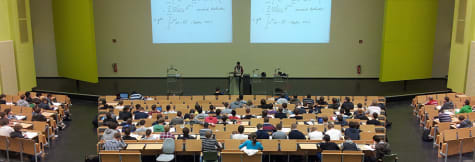
We've answered some of the most frequently asked questions about PhDs, covering course types, applications, funding and the benefits of further study.

Will a PhD help you get a job or earn a better salary? And what are your career prospects in and outside of academia?

Everything you need to know about part-time and full-time work as a student or recent graduate in the USA.

Everything you need to know about part-time and full-time work in Germany as a student or recent graduate in Germany.

Everything you need to know about working in France during and after your postgraduate degree, including French work visas, job opportunities and popular industries.

Everything you need to know about part-time and full-time work in Italy as a student or recent graduate.
FindAPhD. Copyright 2005-2024 All rights reserved.
Unknown ( change )
Have you got time to answer some quick questions about PhD study?
Select your nearest city
You haven’t completed your profile yet. To get the most out of FindAPhD, finish your profile and receive these benefits:
- Monthly chance to win one of ten £10 Amazon vouchers ; winners will be notified every month.*
- The latest PhD projects delivered straight to your inbox
- Access to our £6,000 scholarship competition
- Weekly newsletter with funding opportunities, research proposal tips and much more
- Early access to our physical and virtual postgraduate study fairs
Or begin browsing FindAPhD.com
or begin browsing FindAPhD.com
*Offer only available for the duration of your active subscription, and subject to change. You MUST claim your prize within 72 hours, if not we will redraw.

Do you want hassle-free information and advice?
Create your FindAPhD account and sign up to our newsletter:
- Find out about funding opportunities and application tips
- Receive weekly advice, student stories and the latest PhD news
- Hear about our upcoming study fairs
- Save your favourite projects, track enquiries and get personalised subject updates

Create your account
Looking to list your PhD opportunities? Log in here .
- Divisions and Offices
- Grants Search
- Manage Your Award
- NEH's Application Review Process
- Professional Development
- Grantee Communications Toolkit
- NEH Virtual Grant Workshops
- Awards & Honors
- American Tapestry
- Humanities Magazine
- NEH Resources for Native Communities
- Search Our Work
- Office of Communications
- Office of Congressional Affairs
- Office of Data and Evaluation
- Budget / Performance
- Contact NEH
- Equal Employment Opportunity
- Human Resources
- Information Quality
- National Council on the Humanities
- Office of the Inspector General
- Privacy Program
- State and Jurisdictional Humanities Councils
- Office of the Chair
- NEH-DOI Federal Indian Boarding School Initiative Partnership
- NEH Equity Action Plan
- GovDelivery
Fellowships
Division of research programs.
THE DEADLINE FOR THIS CYCLE HAS PASSED.
Updated guidelines will be posted in advance of the next deadline. In the meantime, please use these guidelines to get a sense of what is involved in assembling an application.
Grant Snapshot
Maximum award amount, funding opportunity for, expected output, period of performance, application available (anticipated), next deadline (anticipated), expected notification date, project start date.
Applicants to NEH for awards with expected issuance dates on or after October 1, 2024, should be aware of revisions to the Uniform Administrative Requirements, Cost Principles, and Audit Requirements for Federal Awards (2 CFR Part 200) effective from that date. All NEH awards issued on or after October 1, 2024, will be subject to the revised regulations. Exemption Note: While awards to individuals do not include budgets, indirect costs, or single audits, broader revisions to 2 CFR 200 may be applicable.
Additional information is available at https://www.neh.gov/grants/manage/2024-Revisions-to-2-CFR-200
NEH Fellowships are competitive awards granted to individual scholars pursuing projects that embody exceptional research, rigorous analysis, and clear writing. Applications must clearly articulate a project’s value to humanities scholars, general audiences, or both.
Fellowships provide recipients time to conduct research or to produce books, monographs, peer-reviewed articles, e-books, digital materials, translations with annotations or a critical apparatus, or critical editions resulting from previous research. Projects may be at any stage of development.
NEH invites research applications from scholars in all disciplines, and it encourages submissions from independent scholars and junior scholars.
Applicants interested in research projects that are either born digital or require mainly digital expression and digital publication are encouraged to apply instead for Fellowships for Digital Publication .
Note about Humanities Perspectives on Artificial Intelligence This grant program is one of ten NEH programs that are part of NEH’s Humanities Perspectives on Artificial Intelligence initiative, which is encouraging research on the ethical, legal, and societal implications of AI. To learn more about the initiative, please see our page about the AI initiative .
2024 NEH Fellowships Webinar
A free online information session will be held on February 14, 2024, from 12:30 p.m. to 2:00 p.m. Eastern Time . A recording will be provided. The webinar introduces the program, describes the application process and eligibility criteria, and offers application writing suggestions. It consists of a 45-minute presentation followed by a question-and-answer session. Close captions are provided.
Please register for this webinar here .
Read the notice of funding opportunity to ensure you understand all the expectations and restrictions for projects delivered under this program and are prepared to write the most effective application.
Application Materials
Fellowships Notice of Funding Opportunity, 2024 (PDF)
Fellowships Grants.gov application package
Program Resources
Fellowships Frequently Asked Questions, 2024 (PDF)
List of recently funded Fellowships
Sample Application Narratives
The narrative samples below are not intended to serve as models, but to give applicants a sense of how a successful application might be crafted. Note that the format might have been changed since these applications were submitted. Follow the guidelines in the currently posted Notice of Funding Opportunity to ensure that your application is complete and eligible.
African Studies and Anthropology, Children of the Soil: The Politics of Built Forms, Labor, and Anticipatory Landscapes in Urban Madagascar
American Literature, Poetry and Community in Auden and Others
American Studies, A Cultural History of the 1950s Calypso Craze in the United States
Architecture, Materialized: The Global Life of Steel
Asian Studies, A Chinese Man-of-Letters in an Age of Industrial Capitalism: Chen Diexian (1879-1940)
Asian Studies (Translation Project), An Edition and Translation of Tarikh-i Hamidi, a 19th-Century Uyghur History of Eurasia
British Literature, Paper Art and Craft: Victorian Writers and Their Materials
Classics, Ovid’s Homer: Tradition, Authority, and Epic Reception
Comparative Literature, Moroccan Literature and the Memory of Medieval Muslim Iberia
Comparative Literature, The Aesthetic Cold War: Decolonization and Global Literature
European History, Emigration from Eastern Europe to the United States, 1889-1989
German Studies (includes new work plan format), Disinformation and the Illustrierter Beobachter, 1926–1945
History of Science, Inside-Out Earth: Residual Governance Under Extreme Conditions
Italian Literature (Translation Project), 'The First Novel Specially Written for Women'- Jacopo Caviceo's Peregrino (1508)
Latin American Studies, The Creole Circus and the Theater in Argentina and Uruguay, 1860-1910
Latin American Studies, Reading Programs, Cultural Engagement, and Civic Participation in Latin America
Legal History (includes new work plan format), Ordering Property- A Global History of Maritime Prize Law, 1498-1916
Media Studies, A Cultural History of American Color Television
Medieval Studies, Secrecy and Divinity in Early English Literature
Middle Eastern Studies, The Formation of Islamic Civilization, 1040-1194
Music History and Criticism, The Comedians of the King
Political Science, Tocqueville on Religion and Democracy
Religious Studies, Temples of Humanity: A Religious History of American Secularism
Russian History, Europe's Russian Colonies: Tsarist Subjects Abroad and the Quest for Freedom in the 19th Century
U.S. History, African Americans who Returned to the United States from Canada after the Civil War
U.S. History, Choctaw Confederates: The American Civil War in Indian Country
U.S. History (work plan only), Old Age in the Wake of the American Revolution
U.S. History, Race, Liberty, and Policing before the Fourteenth Amendment to the U.S. Constitution
U.S. History, The Mutiny on the Hermione and American Political Culture
U.S. History, Voices of the Enslaved: Love, Labor, and Longing in French Louisiana
When you are ready to apply, register for a Grants.gov account . If you already have registered, make sure the account is current. After registering, you must add an “individual applicant” profile. Click on the “My Account” link, then on “Manage Profiles” and “Add Profile.” Refer to Grants.gov’s instructions for adding a profile .
- Register with Grants.gov
- Grants.gov Applicant Registration Guidance
- Download Adobe Reader
- Tips for making PDFs
Follow the instructions outlined in the Notice of Funding Opportunity and Grants.gov.
You will receive a confirmation from Grants.gov when you’ve successfully submitted your application. Subsequently, you will receive up to five more notices confirming different stages in the application process. Verify that you have received all confirmations. Note that email filters may send these messages to your spam or junk folder.
NEH will request letters of reference from your recommenders approximately seven to ten days after the application deadline. You will be notified by email when each of your letters of reference has been received. Once you receive final confirmation of receipt from Grants.gov, you may check the status of your letters by logging in to the secure area of NEH’s website . Enter your NEH application number and your Grants.gov tracking number. You will be able to see the names and e-mail addresses of your letter writers and whether their letters have arrived. If necessary, you may send reminders to your letter writers (including the upload link) from this site. You are responsible for ensuring that your letter writers have received the solicitations from NEH and submitted their letters.
Program Statistics
Examples of projects funded by this grant program.

The Life of American Author Henry David Thoreau (1817-1862)

Leonard Bernstein and the Theater

The Public Library in the Life of the American People, 1850-2000

- GRANTS & FUNDING HOME
- ABOUT GRANTS
- POLICY & COMPLIANCE
- NEWS & EVENTS
Division of Biomedical Research Workforce
- The Biomedical Research Workforce
- Reports on the Biomedical Research Workforce
- Extramural Diversity
- Undergraduate
- Graduate/Doctorate
- Postdoctoral/Residency
- Early Career
- Established Investigator
- Fellowships
- Career Development
- Other Training-Related
- Research Education
- Institute/Program Matrix
- Resources
Individual Fellowships (F) Kiosk
To provide individual research training opportunities (including international) to trainees at the undergraduate, graduate, and postdoctoral levels.
Ruth L. Kirschstein Individual Predoctoral NRSA for MD/PhD and other Dual Degree Fellowships
Individual fellowships for predoctoral training which leads to the combined MD/PhD and other dual Clinical/Research degrees.
Ruth L. Kirschstein Predoctoral Individual National Research Service Award
To provide predoctoral individuals with supervised research training in specified health and health-related areas leading toward the research doctoral degree (e.g., PhD).
Ruth L. Kirschstein National Research Service Award Individual Predoctoral Fellowship to Promote Diversity in Health-Related Research (Parent F31 - Diversity)
Ruth L. Kirschstein Postdoctoral Individual National Research Service Award
To provide postdoctoral research training to individuals to broaden their scientific background and extend their potential for research in specified health-related areas.
Ruth L. Kirschstein National Research Service Awards for Senior Fellows
To provide opportunities for experienced scientists to make major changes in the direction of research careers, or to acquire new research capabilities to engage in health-related research.
Individual Predoctoral to Postdoctoral Fellow Transition Award
To support Pre- to Post-doctoral transition of highly motivated graduate students. The F99 activity code is intended to only be used in conjunction with a K00 Award.
Stipend Levels & Info
- NIH Policies for NRSA Stipends, Compensation and Other Income
- NRSA Stipends (FY 2024)
- NRSA Stipends (FY 2023)
- Stipend/Salary FAQs
Policy Notices
- NOT-OD-24-129: Updates to NIH Institutional Training Grant Applications for Due Dates on or After January 25, 2025
- NOT-OD-24-116: Childcare Costs for Ruth L. Kirschstein National Research Service Award (NRSA) Individual Fellows and Institutional Research Training Awards
- NOT-OD-24-107: Implementation of Revisions to the NIH and AHRQ Fellowship Application and Review Process
- NOT-OD-24-084: Overview of Grant Application and Review Changes for Due Dates on or after January 25, 2025
- NOT-OD-23-111: Reminder – NIH Policies for NRSA Stipends, Compensation and Other Income
- NOT-OD-23-076: Ruth L. Kirschstein National Research Service Award (NRSA) Stipends, Tuition/Fees and Other Budgetary Levels Effective for Fiscal Year 2023
Home About DBRW Career Path Programs Institute/Program Matrix Resources FAQ HHS Vulnerability Disclosure Disclaimer Contact Us
NIH Grants and Funding National Institutes of Health U.S. Department of Health and Human Services USA.gov – Government Made Easy
Older Versions of this Page
Google PhD fellowship program
Google PhD Fellowships directly support graduate students as they pursue their PhD, as well as connect them to a Google Research Mentor.
Nurturing and maintaining strong relations with the academic community is a top priority at Google. The Google PhD Fellowship Program was created to recognize outstanding graduate students doing exceptional and innovative research in areas relevant to computer science and related fields. Fellowships support promising PhD candidates of all backgrounds who seek to influence the future of technology. Google’s mission is to foster inclusive research communities and encourage people of diverse backgrounds to apply. We currently offer fellowships in Africa, Australia, Canada, East Asia, Europe, India, Latin America, New Zealand, Southeast Asia and the United States.
Quick links
- Copy link ×
Program details
Application status, how to apply, research areas of focus, review criteria, award recipients.
Applications are currently closed.
Decisions for the 2024 application cycle will be announced via email in July 2024. Please check back in 2025 for details on future application cycles.
- Launch March 27, 2024
- Deadline May 8, 2024
- Winner selected by July 31, 2024
The details of each Fellowship vary by region. Please see our FAQ for eligibility requirements and application instructions.
PhD students must be nominated by their university. Applications should be submitted by an official representative of the university during the application window. Please see the FAQ for more information.
Australia and New Zealand
Canada and the United States
PhD students in Japan, Korea and Taiwan must be nominated by their university. After the university's nomination is completed, either an official representative of the university or the nominated students can submit applications during the application window. Please see the FAQ for more information.
India and Southeast Asia
PhD students apply directly during the application window. Please see the FAQ for more information.
Latin America
The 2024 application cycle is postponed. Please check back in 2025 for details on future application cycles.
Google PhD Fellowship students are a select group recognized by Google researchers and their institutions as some of the most promising young academics in the world. The Fellowships are awarded to students who represent the future of research in the fields listed below. Note that region-specific research areas will be listed in application forms during the application window.
Algorithms and Theory
Distributed Systems and Parallel Computing
Health and Bioscience
Human-Computer Interaction and Visualization
Machine Intelligence
Machine Perception
Natural Language Processing
Quantum Computing
Security, Privacy and Abuse Prevention
Software Engineering
Software Systems
Speech Processing
Applications are evaluated on the strength of the research proposal, research impact, student academic achievements, and leadership potential. Research proposals are evaluated for innovative concepts that are relevant to Google’s research areas, as well as aspects of robustness and potential impact to the field. Proposals should include the direction and any plans of where your work is going in addition to a comprehensive description of the research you are pursuing.
In Canada and the United States, East Asia and Latin America, essay responses are evaluated in addition to application materials to determine an overall recommendation.
What does the Google PhD Fellowship include?
Students receive named Fellowships which include a monetary award. The funds are given directly to the university to be distributed to cover the student’s expenses and stipend as appropriate. In addition, the student will be matched with a Google Research Mentor. There is no employee relationship between the student and Google as a result of receiving the fellowship. The award does not preclude future eligibility for internships or employment opportunities at Google, nor does it increase the chances of obtaining them. If students wish to apply for a job at Google, they are welcome to apply for jobs and go through the same hiring process as any other person.
- Up to 3 year Fellowship
- US $12K to cover stipend and other research related activities, travel expenses including overseas travel
- Google Research Mentor
- 1 year Fellowship
- AUD $15K to cover stipend and other research related activities, travel expenses including overseas travel
- Up to 2 year Fellowship (effective from 2024 for new recipients)
- Full tuition and fees (enrollment fees, health insurance, books) plus a stipend to be used for living expenses, travel and personal equipment
- US $10K to cover stipend and other research related activities, travel expenses including overseas travel
- Yearly bursary towards stipend / salary, health care, social benefits, tuition and fees, conference travel and personal computing equipment. The bursary varies by country.
Early-stage PhD students
- Up to 4 year Fellowship
- US $50K to cover stipend and other research related activities, travel expenses including overseas travel
Late-stage PhD students
- US $10K to recognise research contributions, cover stipend and other research related activities, travel expenses including overseas travel
- US $15K per year to cover stipend and other research related activities, travel expenses including overseas travel
Southeast Asia
- US $10K per year for up to 3 years (or up to graduation, whichever is earlier) to cover stipend and other research related activities, travel expenses including overseas travel
Is my university eligible for the PhD Fellowship Program?
Africa, Australia/New Zealand , Canada, East Asia, Europe and the United States : universities must be an accredited research institution that awards research degrees to PhD students in computer science (or an adjacent field).
India, Latin America and Southeast Asia : applications are open to universities/institutes in India, Latin America (excluding Cuba), and in eligible Southeast Asian countries/regions (Brunei, Cambodia, Indonesia, Malaysia, Myanmar, Philippines, Singapore, Thailand, Vietnam).
Restrictions : All award payments and recipients will be reviewed for compliance with relevant US and international laws, regulations and policies. Google reserves the right to withhold funding that may violate laws, regulations or our policies.
What are the eligibility requirements for students?
All regions
- Students must remain enrolled full-time in the PhD program for the duration of the Fellowship or forfeit the award.
- Google employees, and their spouses, children, and members of their household are not eligible.
- Students that are already supported by a comparable industry award are not eligible. Government or non-profit organization funding is exempt.
- Past awardees from the PhD Fellowship program are not eligible to apply again.
- Grant of the Fellowship does not mean admission to a PhD program. The awardee must separately apply and be accepted to a PhD program in computer science (or an adjacent field) at an eligible institution.
- Grant of the Fellowship will be subject to the rules and guidelines applicable in the institution where the awardee registers for the PhD program.
Nominated students in Africa, Australia and New Zealand, Canada and the United States, East Asia and Europe.
Universities should only nominate students that meet the following requirements:
- Africa: Incoming PhD students are eligible to apply, but the Fellowship award shall be contingent on the awardee registering for a full-time PhD program in computer science (or an adjacent field) within the academic award year of the Fellowship award, or the award shall be forfeited.
- Australia and New Zealand : early-stage students enrolled in the first or second year of their PhD (no requirement for completion of graduate coursework by the academic award year).
- Canada and the United States : students who have completed graduate coursework in their PhD by the academic award year when the Fellowship begins.
- East Asia: students who have completed most of graduate coursework in their PhD by the academic award year when the Fellowship begins. Students should have sufficient time for research projects after receiving a fellowship.
- Europe: Students enrolled at any stage of their PhD are eligible to apply.
Direct applicant students in India, Latin America and Southeast Asia
- Latin America : incoming or early stage-students enrolled in the first or second year of their PhD (no requirement for completion of graduate coursework by the academic award year).
What should be included in an application? What language should the application be in?
All application materials should be submitted in English.
For each student nomination, the university will be asked to submit the following material in a single, flat (not portfolio) PDF file:
- Student CV with links to website and publications (if available)
- Short (1-page) resume/CV of the student's primary PhD program advisor
- Available transcripts (mark sheets) starting from first year/semester of Bachelor's degree to date
- Research proposal (maximum 3 pages, excluding references)
- 2-3 letters of recommendation from those familiar with the nominee''s work (at least one from the thesis advisor for current PhD students)
- Student essay response (350-word limit) to: What impact would receiving this Fellowship have on your education? Describe any circumstances affecting your need for a Fellowship and what educational goals this Fellowship will enable you to accomplish.
- Transcripts of current and previous academic records
- 1-2 letters of recommendation from those familiar with the nominee's work (at least one from the thesis advisor)
Canada, East Asia, the United States
- Cover sheet signed by the Department Chair confirming the student passes eligibility requirements. (See FAQ "What are the eligibility requirements for students?")
- Short (1-page) CV of the student's primary advisor
- 2-3 letters of recommendation from those familiar with the nominee's work (at least one from the thesis advisor)
- Research / dissertation proposal (maximum 3 pages, excluding references)
- Student essay response (350-word limit) to: Describe the desired impact your research will make on the field and society, and why this is important to you. Include any personal, educational and/or professional experiences that have motivated your research interests.
- Student essay response (350-word limit) to: Describe an example of your leadership experience in which you have positively influenced others, helped resolve disputes or contributed to group efforts over time. (A leadership role can mean more than just a title. It can mean being a mentor to others, acting as the person in charge of a specific task, or taking the lead role in organizing an event or project. Think about what you accomplished and what you learned from the experience. What were your responsibilities? Did you lead a team? How did your experience change your perspective on leading others? Did you help to resolve an important dispute at your school, church, in your community or an organization? And your leadership role doesn’t necessarily have to be limited to school activities. For example, do you help out or take care of your family?)
Students will need the following documents in a single, flat (not portfolio) PDF file in order to complete an application (in English only):
- Student applicant’s resume with links to website and publications (if available)
- Short (one-page) resume/CV of the student applicant's primary PhD program advisor
- 2-3 letters of recommendation from those familiar with the applicant's work (at least one from the thesis advisor for current PhD students)
- Applicant's essay response (350-word limit) to: Describe the desired impact your research will make on the field and society, and why this is important to you. Include any personal, educational and/or professional experiences that have motivated your research interests.
- Applicant's essay response (350-word limit) to: What are your long-term goals for your pathway in computing research, and how would receiving the Google PhD Fellowship help you progress toward those goals in the short-term?
How do I apply for the PhD Fellowship Program? Who should submit the applications? Can students apply directly for a Fellowship?
Check the eligibility and application requirements in your region before applying. Submission forms are available on this page when the application period begins.
India, Latin America and Southeast Asia: students may apply directly during the application period.
Africa, Australia, Canada, East Asia, Europe, New Zealand, and the United States : students cannot apply directly to the program; they must be nominated by an eligible university during the application period.
How many students may each university nominate?
India, Latin America and Southeast Asia : applications are open directly to students with no limit to the number of students that can apply from a university.
Australia and New Zealand : universities may nominate up to two eligible students.
Canada and the United States : Universities may nominate up to four eligible students. We encourage nominating students with diverse backgrounds especially those from historically marginalized groups in the field of computing. If more than two students are nominated then we strongly encourage additional nominees who self-identify as a woman, Black / African descent, Hispanic / Latino / Latinx, Indigenous, and/or a person with a disability.
Africa, East Asia and Europe : Universities may nominate up to three eligible students. We encourage nominating students with diverse backgrounds especially those from historically marginalized groups in the field of computing. If more than two students are nominated then we strongly encourage the additional nominee who self-identifies as a woman.
*Applications are evaluated on merit. Please see FAQ for details on how applications are evaluated.
How are applications evaluated?
In Canada and the United State, East Asia and Latin America, essay responses are evaluated in addition to application materials to determine an overall recommendation.
A nominee's status as a member of a historically marginalized group is not considered in the selection of award recipients.
Research should align with Google AI Principles .
Incomplete proposals will not be considered.
How are Google PhD Fellowships given?
Any monetary awards will be paid directly to the Fellow's university for distribution. No overhead should be assessed against them.
What are the intellectual property implications of a Google PhD Fellowship?
Fellowship recipients are not subject to intellectual property restrictions unless they complete an internship at Google. If that is the case, they are subject to the same intellectual property restrictions as any other Google intern.
Will the Fellowship recipients become employees of Google?
No, Fellowship recipients do not become employees of Google due to receiving the award. The award does not preclude future eligibility for internships or employment opportunities at Google, nor does it increase the chances of obtaining them. If they are interested in working at Google, they are welcome to apply for jobs and go through the same hiring process as any other person.
Can Fellowship recipients also be considered for other Google scholarships?
Yes, Fellowship recipients are eligible for these scholarships .
After award notification, when do the Google PhD Fellowships begin?
After Google PhD Fellowship recipients are notified, the Fellowship is effective starting the following school year.
What is the program application time period?
Applications for the 2024 program will open in March 2024 and close in May 2024 for all regions. Refer to the main Google PhD Fellowship Program page for each region’s application details.
A global awards announcement will be made in September on the Google Research Blog publicly announcing all award recipients.
How can I ask additional questions?
Due to the volume of emails we receive, we may not be able to respond to questions where the answer is available on the website. If your question has not been answered by a FAQ, email:
Africa: [email protected]
Australia and New Zealand: [email protected]
Canada and the United States: [email protected]
East Asia: [email protected]
Europe: [email protected]
India: [email protected]
Latin America: [email protected]
Southeast Asia: [email protected]
See past PhD Fellowship recipients.
Discover our collection of tools and resources
Browse our library of open source projects, public datasets, APIs and more to find the tools you need to tackle your next challenge or fuel your next breakthrough.


Graduate Research Fellowship Program
The purpose of the NSF Graduate Research Fellowship Program (GRFP) is to help ensure the quality, vitality, and diversity of the scientific and engineering workforce of the United States. A goal of the program is to broaden participation of the full spectrum of diverse talents in STEM.. The program recognizes and supports outstanding graduate students in NSF-supported science, technology, engineering, and mathematics disciplines who are pursuing research-based master’s and doctoral degrees at accredited United States institutions.
As the oldest graduate fellowship of its kind, the GRFP has a long history of selecting recipients who achieve high levels of success in their future academic and professional careers. The reputation of the GRFP follows recipients and often helps them become life-long leaders that contribute significantly to both scientific innovation and teaching. Past fellows include numerous Nobel Prize winners, former U.S. Secretary of Energy, Steven Chu, Google founder, Sergey Brin and Freakonomics co-author, Steven Levitt.
Fellows share in the prestige and opportunities that become available when they are selected. Fellowships provide the student with a three-year annual stipend of $37,000 along with a $16,000 cost of education allowance for tuition and fees (paid to the institution), as well as access to opportunities for professional development available to NSF-supported graduate students. Fellowships may only be used for an eligible graduate degree program at an academic institution accredited in, and having a campus located in, the US, its territories, possessions, or the Commonwealth of Puerto Rico.
NSF Fellows are anticipated to become knowledge experts who can contribute significantly to research, teaching, and innovations in science and engineering. These individuals are crucial to maintaining and advancing the nation’s technological infrastructure and national security as well as contributing to the economic well-being of society at large.
So that the nation can build fully upon the strength and creativity of a diverse society, the Foundation welcomes applications from all qualified individuals. Women, under-represented minorities and people with disabilities are encouraged to apply.
The fellowship is competitive, and those planning to apply should devote a sincere effort to their application. See the Applicants section for more information.
The Graduate Research Fellowship Program History
The National Science Foundation (NSF) Graduate Research Fellowship Program (GRFP) is the country’s oldest fellowship program that directly supports graduate students in various STEM (Science, Technology, Engineering and Mathematics) fields. In March 1951, Alan T. Waterman , the chief scientist at the Office of Naval Research, was appointed by President Truman to become the first Director of the National Science Foundation. Waterman defined the Foundation’s policy role as “one of advocating a research support program, improving government-university relations, and compiling reliable information on scientific research and manpower.” In 1951, Congress appropriated only $151,000 for the agency to start administrative operations. GRFP was established as the first program in the foundation’s history, to encourage individuals to pursue graduate education in science. In developing the program, graduate school was targeted as the academic level most likely to quickly produce scientists and engineers who could contribute to scientific accomplishments and innovation in the U.S.
Since 1952, NSF has funded over 70,000 Graduate Research Fellowships out of more than 500,000 applicants. Currently, 42 Fellows have gone on to become Nobel laureates, and more than 450 have become members of the National Academy of Sciences. In addition, the Graduate Research Fellowship Program has a high rate of doctorate degree completion, with more than 70 percent of students completing their doctorates within 11 years.
Learn more about the history of the National Science Foundation.

National Science Board Members, July 1951.
(left to right) First Row: Dr. John W. Davis, Dr. Sophie B. Aberle, Dr. Detlev W. Bronk, Dr. James B. Conant, Dr. Alan T. Waterman, Dr. Gerty T. Cori, The Rev. Patrick H. Yancey
Standing Row: Dr. Marston Morse, Dr. E.C. Stakman, Dr. Chester I. Barnard, Dr. Paul M. Gross, Dr. Frederick A. Middlebush, Dr. Joseph C. Morris, Dr. James A. Reyniers, Dr. O.W. Hyman, Dr. Lee A. DuBridge, Dr. Robert F. Loeb, Dr. Robert P. Barnes, Dr. George D. Humphrey, Dr. A.A. Potter, Mr. Charles Dollard.
Credit: NSF Collection
http://www.nsf.gov/about/history/overview-50.jsp
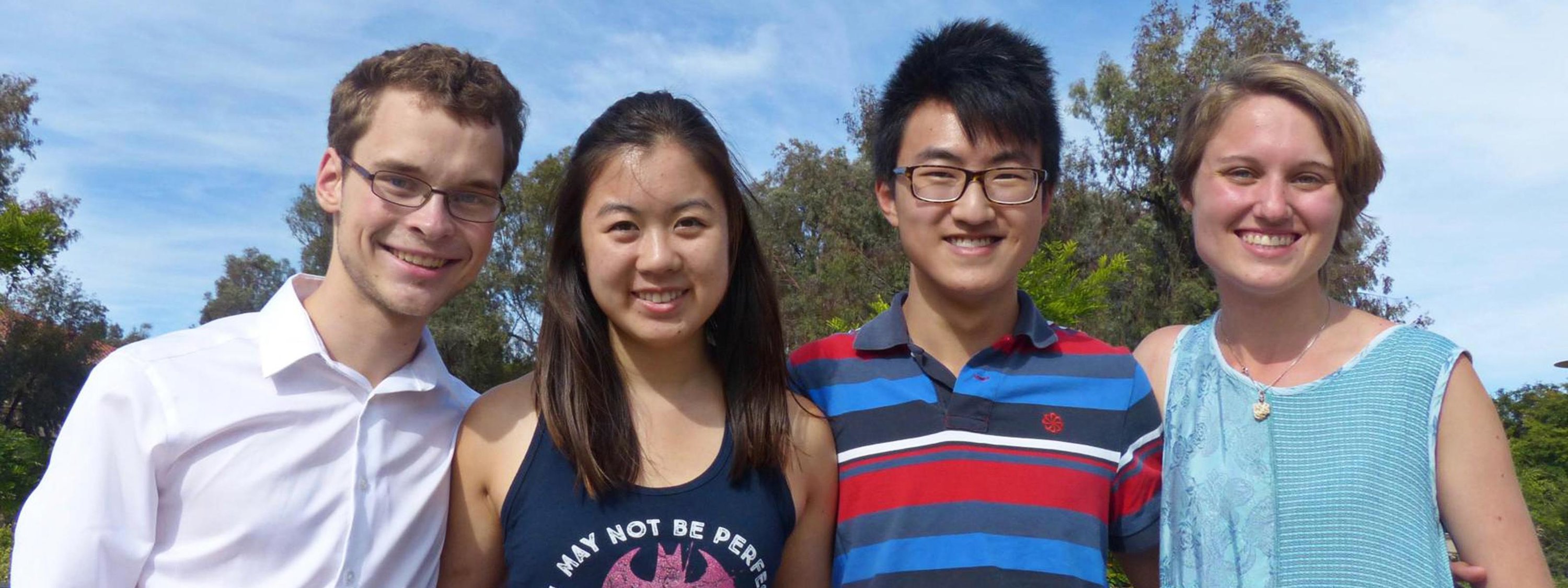
Research Fellowships
Main navigation, getting started.
Applying for nationally competitive fellowships offers you the opportunity to consider your future plans and define your goals. Regardless of outcome, participation in competitions hones your ability to write and speak persuasively about your goals.
An introduction to fellowships

Congratulations to our most recent national scholars!
Campus deadlines.
Campus deadlines for our national fellowships for the 2020-21 academic year have been updated.
Info Sessions
Check out an info session before applying! For details on each info session, visit the individual fellowship pages.
| ||||||||||||||||||||||||||||||||||||||||||||||||||||||||||||||||||||||||||||||||||||||||||||||||||||||||||||||||||||||||||||||||||||||||



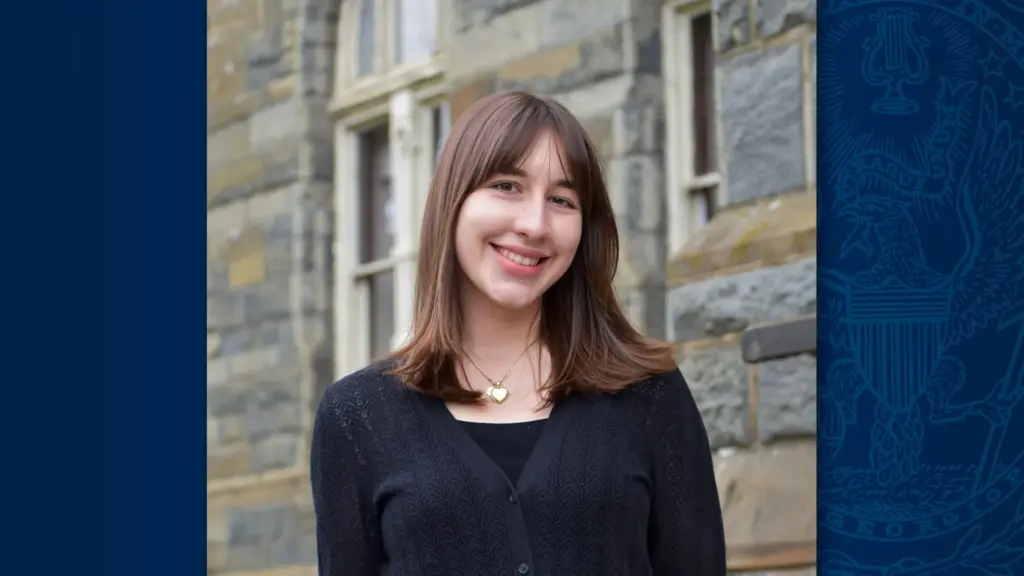
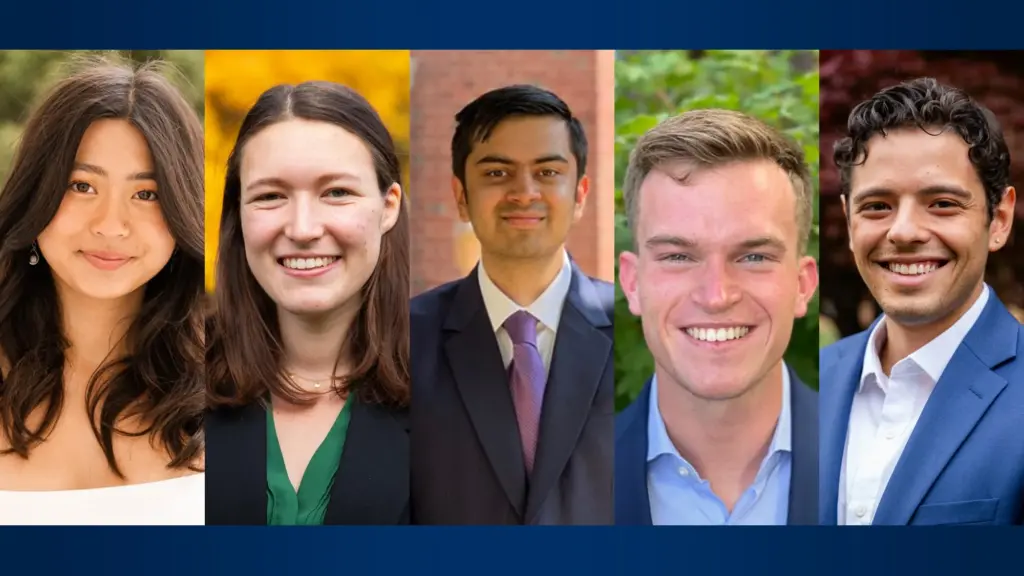
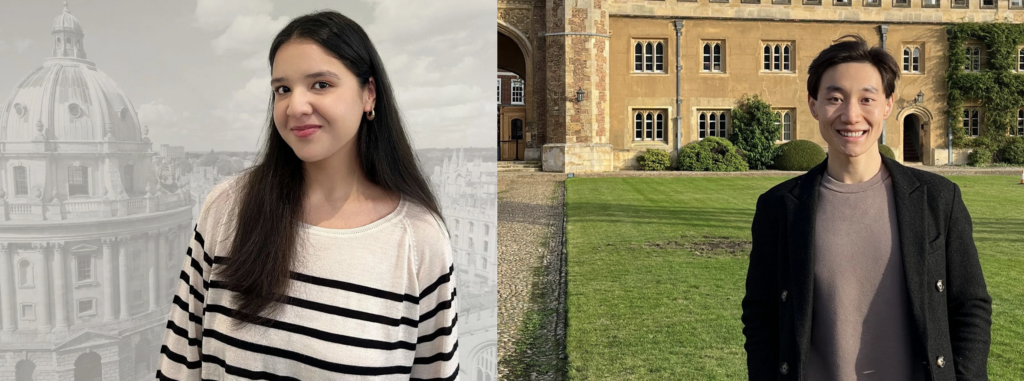
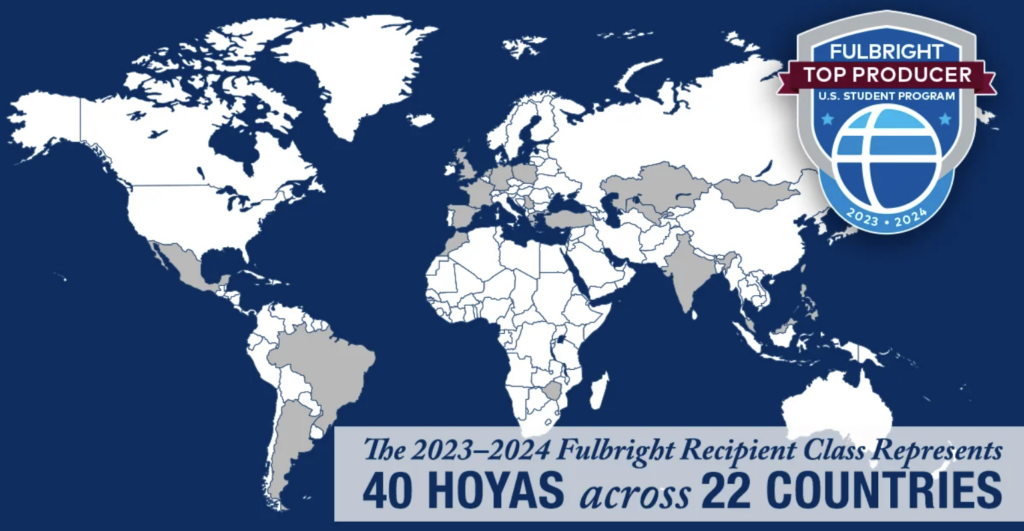
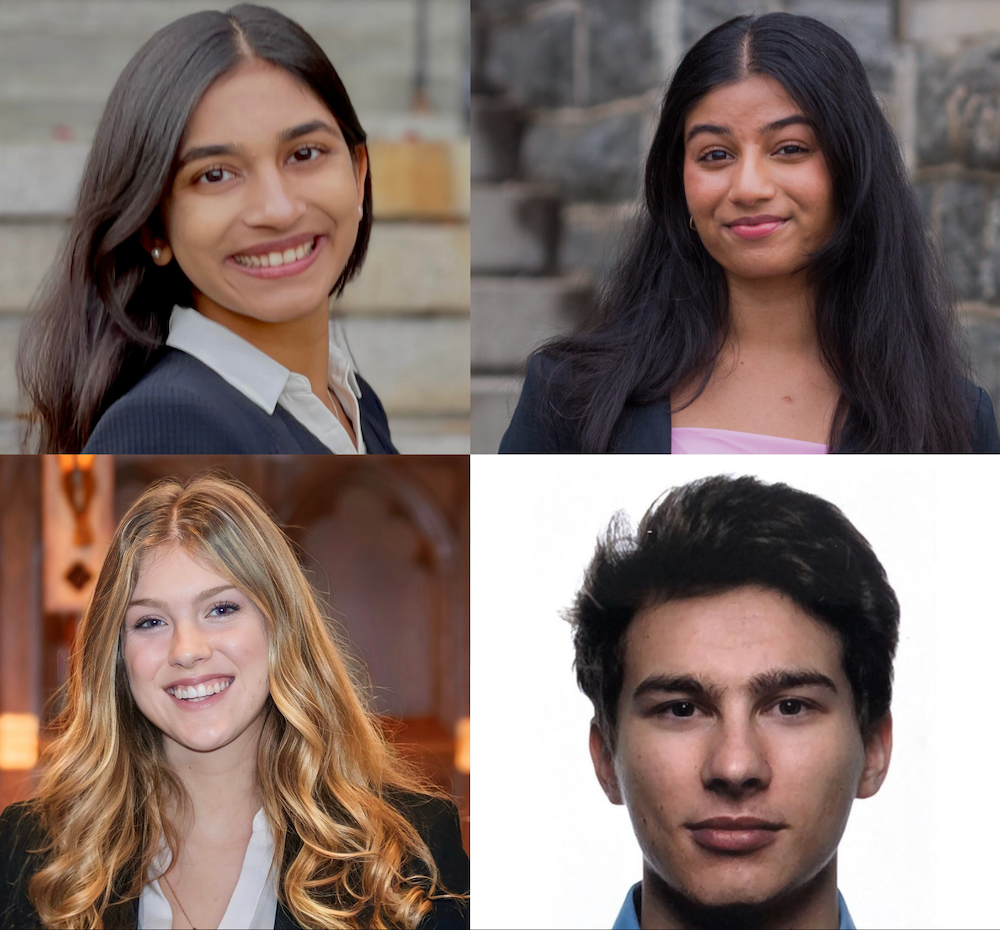

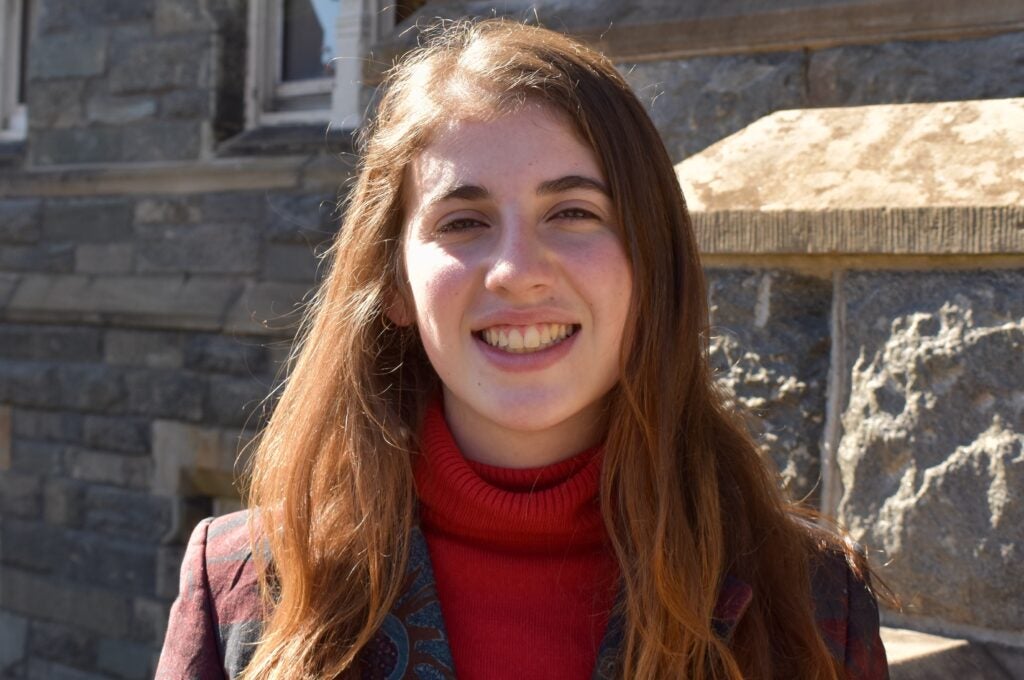
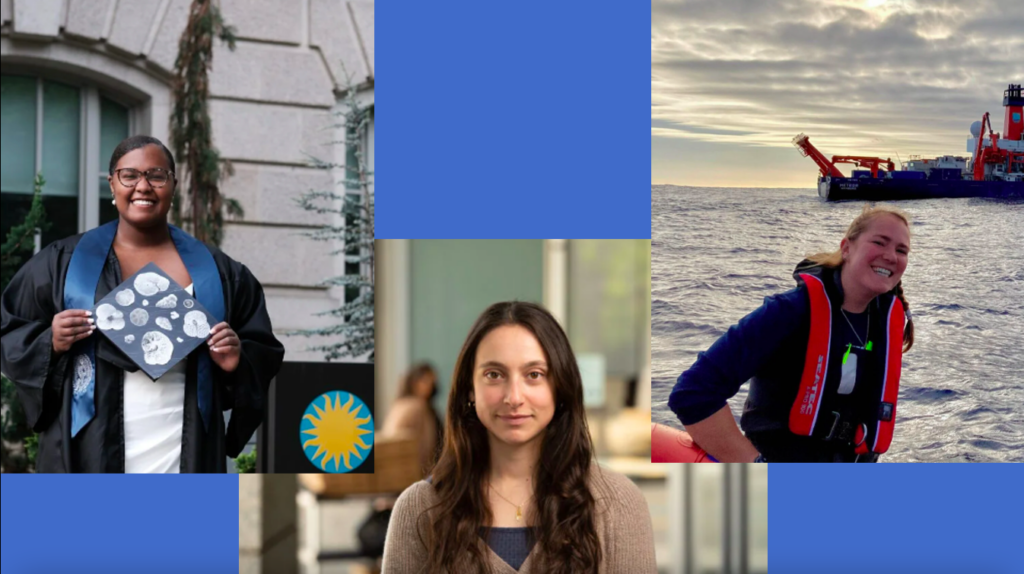
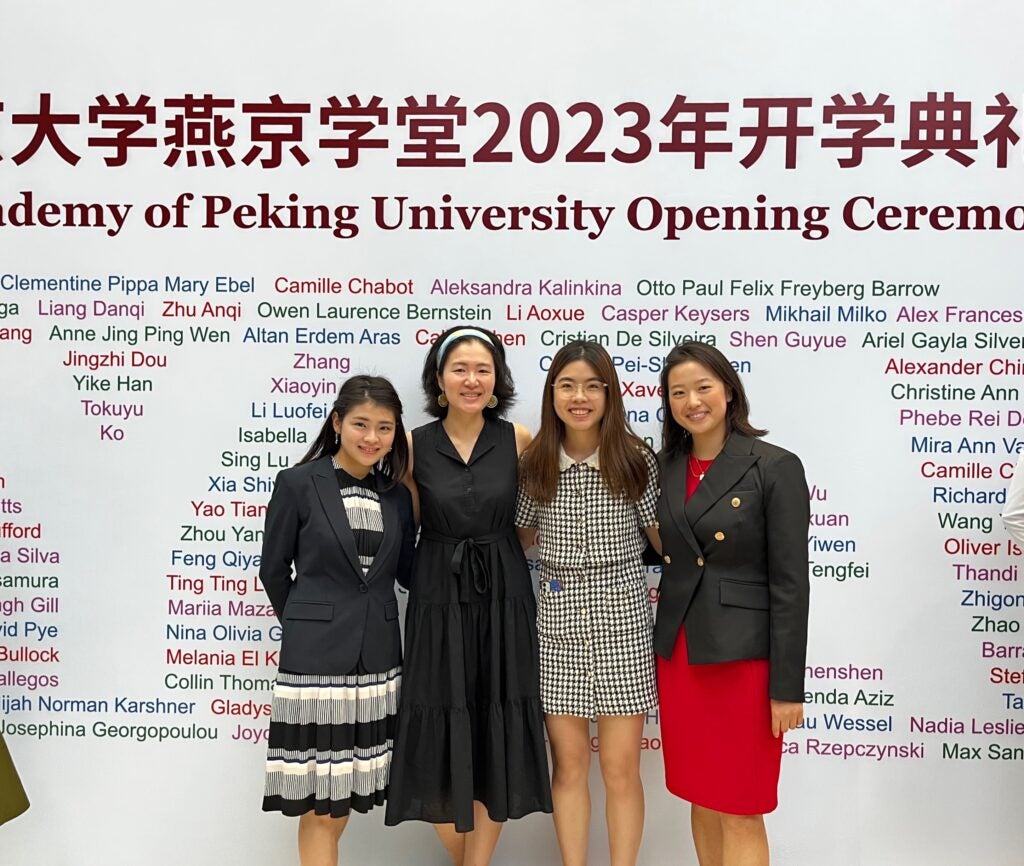
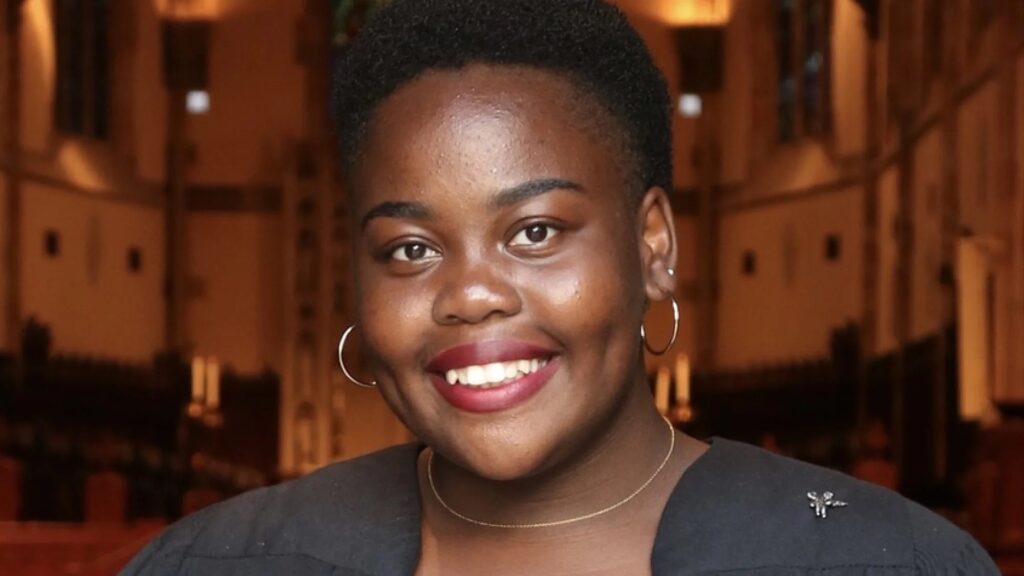
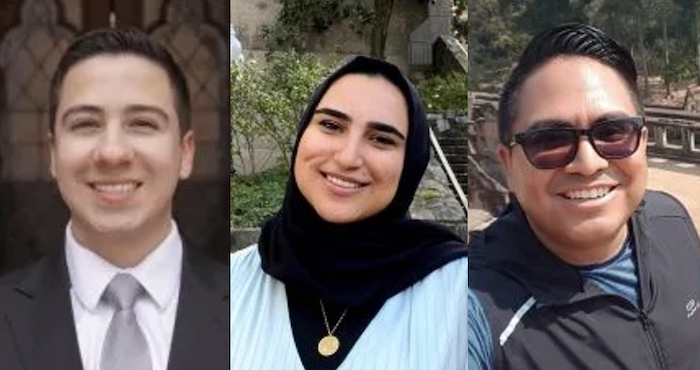
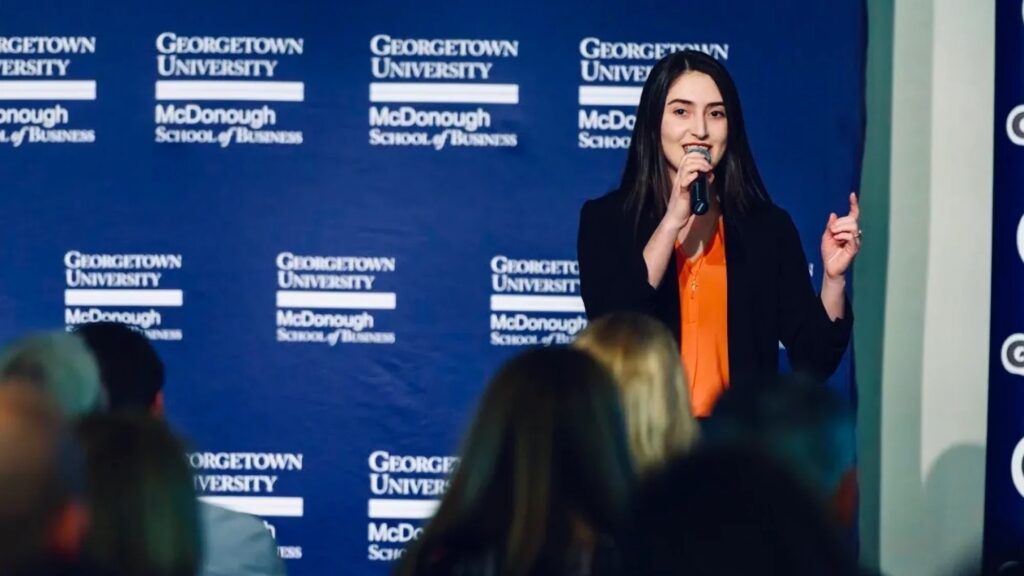
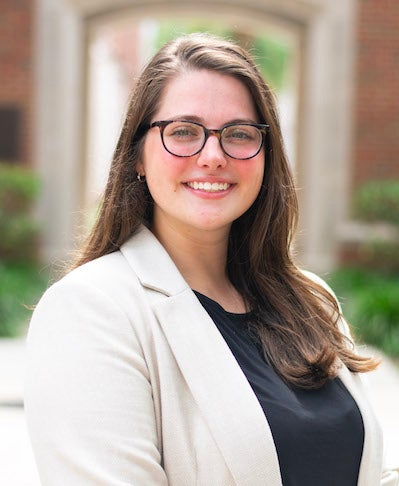
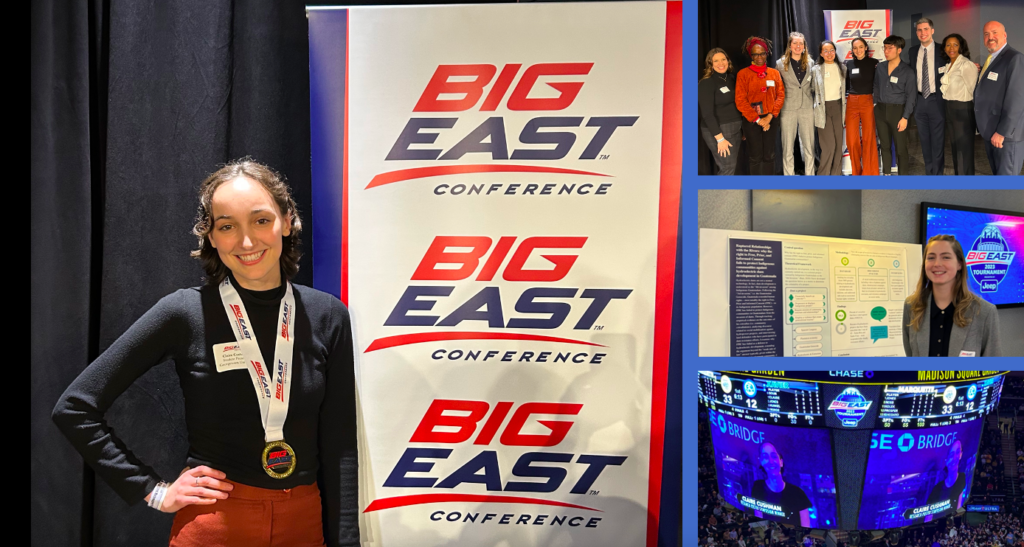









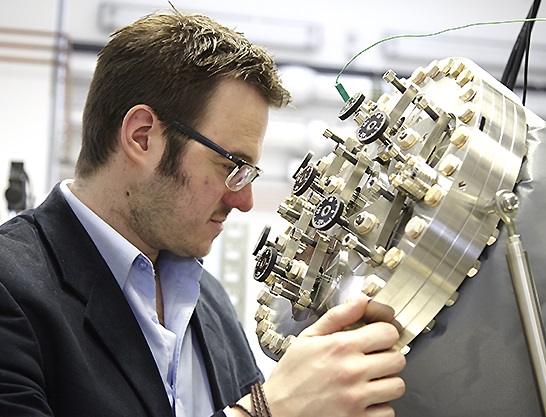
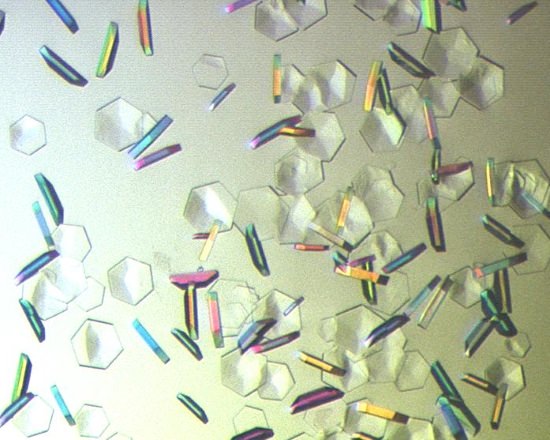



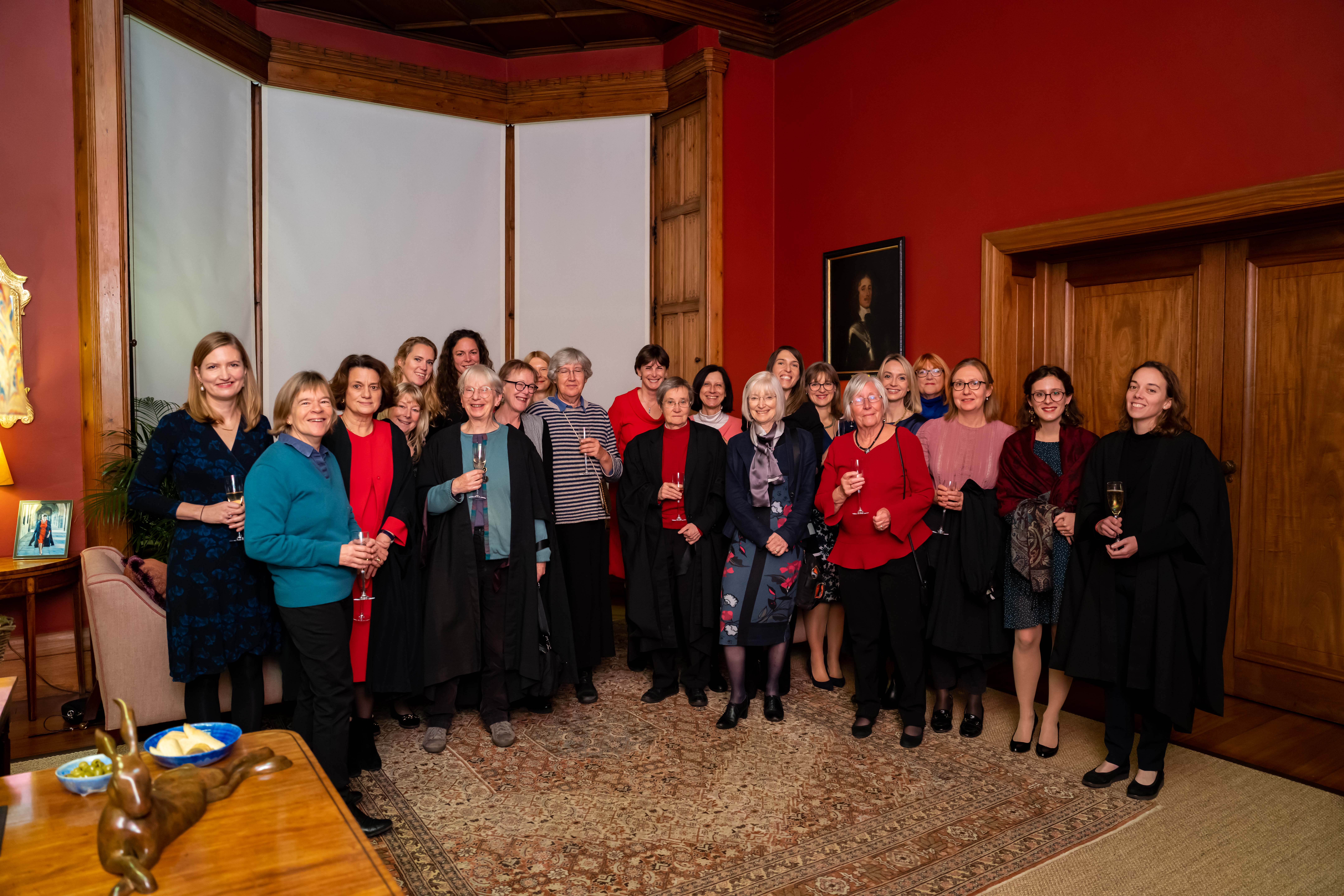
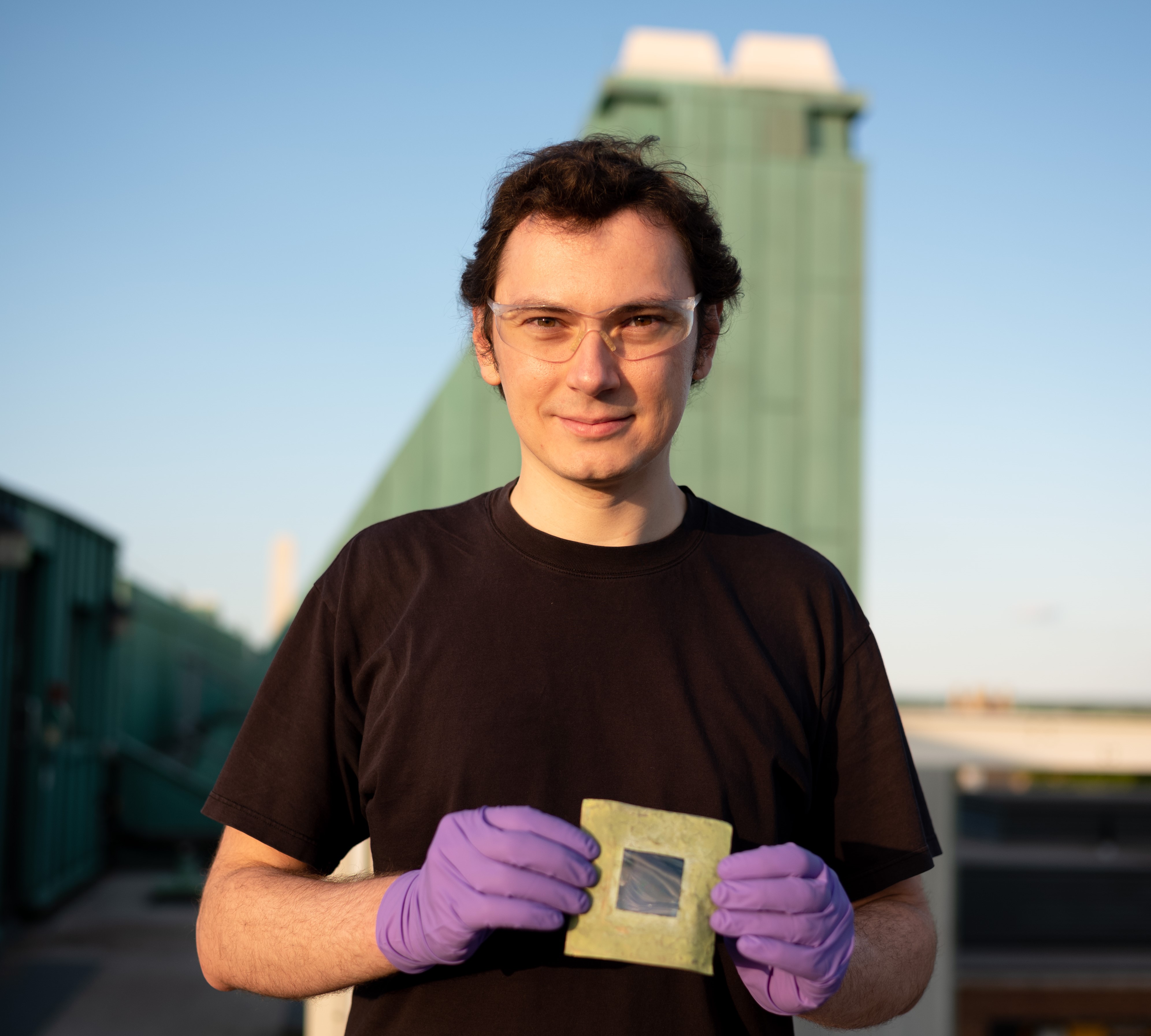


IMAGES
VIDEO
COMMENTS
GRFP is a five-year fellowship that supports outstanding STEM graduate students in the US. Learn about the benefits, eligibility, application process, and review criteria of this program.
Sloan Research Fellowships are two-year $75,000 awards for outstanding researchers in chemistry, computer science, Earth system science, economics, mathematics, neuroscience, physics, or related fields. Candidates must be tenure-track faculty members of a college, university, or other degree-granting institution in the U.S. or Canada.
The Perez Research Fellowship is a 1-year fellowship for currently enrolled undergraduate and graduate students, or retired professionals, of color who want to learn about and contribute to the field of applied research and consulting. Fellows receive training in research methodologies, participate in projects, build their professional networks ...
Learn what a research fellowship is, how to apply, and how to fund your own project. Find out the benefits, requirements, and career options of research fellowships for PhD holders and established academics.
NEH Fellowships are competitive awards granted to individual scholars pursuing projects that embody exceptional research, rigorous analysis, and clear writing. Applications must clearly articulate a project's value to humanities scholars, general audiences, or both. Fellowships provide recipients time to conduct research or to produce books ...
The Graduate Research Fellowship Program (GRFP) recognizes and supports outstanding graduate students who are pursuing research-based master's and doctoral degrees at accredited US institutions.. Sign in to GRFP module. GRFP allows for: Applicants to apply to the GRFP through an online application available in the application module. Applicants can complete, review, and check the status of ...
To provide individual research training opportunities (including international) to trainees at the undergraduate, graduate, and postdoctoral levels. F30. Ruth L. Kirschstein Individual Predoctoral NRSA for MD/ PhD and other Dual Degree Fellowships. Individual fellowships for predoctoral training which leads to the combined MD/PhD and other dual ...
Fellowships for US Scholars to carry out professional projects abroad, or faculty & professionals from around the world to research and study in the US. ... With more than 400 awards annually in over 135 countries to teach, conduct research, and carry out professional projects, find the right Fulbright opportunity for you.
Google PhD Fellowships directly support graduate students as they pursue their PhD, as well as connect them to a Google Research Mentor. Nurturing and maintaining strong relations with the academic community is a top priority at Google. The Google PhD Fellowship Program was created to recognize outstanding graduate students doing exceptional ...
The NSF GRFP is a five-year award which provides three years of funding. This offers flexibility, enabling fellows to select funding periods and status options aligned to their research, teaching, and professional development goals. Duration: 36 months of funding. Fellows may elect an on reserve (non-funded) status for two of the five years. T...
Since 1952, NSF has funded over 70,000 Graduate Research Fellowships out of more than 500,000 applicants. Currently, 42 Fellows have gone on to become Nobel laureates, and more than 450 have become members of the National Academy of Sciences. In addition, the Graduate Research Fellowship Program has a high rate of doctorate degree completion ...
Learn how to apply for nationally competitive fellowships that support your academic and professional goals. Find out the campus deadlines, info sessions, and nominees for the 2020-21 academic year.
Level 1. Joint Bachelor's-Master's Student. Currently enrolled in a joint Bachelor's-Master's program; applicants enrolled in a Bachelor's-Master's program are considered Graduate Students. Concurrent enrollment in BS/MS program and both degrees awarded at the same time as indicated on the transcript. Level 2.
The Graduate Research Fellowship Program is one of the U.S. National Science Foundation's oldest programs, launched in 1952. In fact, the first GRFP awards predate NSF's first awards for research grants. Today, it is one of NSF's most well-known programs. GRFP recruits high-potential, early-career scientists and engineers and supports ...
Research Fellowships In supporting students in pursuing meaningful research experiences, we are committed to helping students not only to think deeply and critically about complex issues but also to become engaged student scholars contributing to the production of new knowledge. Through research, students develop the intellectual building blocks for creative problem-solving, learning by doing ...
SSRC offers unrestricted fellowships to support researchers who pursue novel ideas and policy solutions in various fields. Learn about the different fellowship programs, eligibility criteria, and application deadlines.
ORISE offers challenging research opportunities to help prepare recent graduates for a career in STEM while providing them with laboratory knowledge to use in pursuit of an advanced degree. Recent bachelor's and master's degree graduates are in a position to gain invaluable research experience in a variety of STEM-related disciplines.
Sloan Research Fellowships are awarded to early-career scientists and scholars who show exceptional promise for making significant contributions to their fields. Nominations for the 2024 cycle have closed, but you can explore the current and past fellows, the selection criteria, and the application process.
The University Research Fellowship (URF) programme aims to support the next generation of research leaders to undertake cutting-edge research. The objectives of the URF programme are to enable outstanding early career scientists with the potential to become leaders in their field to: Develop as research leaders by offering tailored high-quality ...
Fellowship programs are announced by Universities, Governments, Research Institutes, NGOs, Hospitals, Foundations, Libraries, and other relevant bodies, with a primary aim to serve the Science and Humanities. Fellowships establish long-lasting academic links between research-oriented individuals and Institutions.
2024 Sloan Research Fellows Congratulations to the Sloan Research Fellows of 2024. The following 126 early-career scholars represent the most promising scientific researchers working today. Their achievements and potential place them among the next generation of scientific leaders in the U.S. and Canada. Winners receive $75,000, which may be ...
The New York Public Library is pleased to offer Short-Term Research Fellowships to support scholars based outside the New York metropolitan area engaged in graduate-level, post-doctoral, and independent research in the arts and humanities. This fellowship is intended to support projects that would significantly benefit from research drawing on collections accessible at The New York Public ...
Postdoctoral Fellowships. If you are a recent doctoral graduate, or postdoc, and would like to obtain additional training within your field, ORISE can help you find a postdoctoral research fellowship at a national laboratory or federal research facility nationwide.
The purpose of the NSF Graduate Research Fellowship Program (GRFP) is to help ensure the quality, vitality, and diversity of the scientific and engineering workforce of the United States. The program recognizes and supports outstanding graduate students who are pursuing full-time research-based master's and doctoral degrees in science ...
Intelligence Community Postdoctoral Research Fellowship Program The Intelligence Community Postdoctoral Research Fellowship Program offers scientists and engineers from a wide variety of disciplines unique opportunities to conduct research in a wide range of topics relevant to the Intelligence Community. The research is conducted by the ...
The Graduate Research Fellowship Program (GRFP) awards Fellowships for graduate study leading to research-based master's and doctoral degrees in STEM or in STEM education. GRFP supports individuals proposing a comprehensive plan for graduate education that takes individual interests and competencies into consideration.
Research Fellows living outside St John's will have an office in College. Fellowships are held on condition of residence within the University of Cambridge, ie within 20 miles of the centre of Cambridge. Research Fellows are also entitled to take one meal each day in College, at College expense. Subject to circumstances, we will consider:
Ph.D. students in the social sciences at UW-Madison who have an interest in U.S. poverty and economic mobility research and expect to complete a related dissertation are eligible to apply for the Institute for Research on Poverty's (IRP) Graduate Research Fellows (GRF) Program. The elements of the GRF program are:
The Predoctoral Research Fellowship Program at the Stanford Institute for Research in the Social Sciences (IRiSS Predoc Program) provides early-career scholars an opportunity to work directly with a faculty mentor to contribute to cutting-edge social science research. During the fellowship year, participants will develop research skills ...
Students interested in applying for the Welter-Muzic Continuing Research Fellowship must submit an online application, send their most recent transcript to [email protected], and complete an interview with Schubert Center staff. They are also required to submit a detailed budget describing how the funds will be spent, a letter of ...